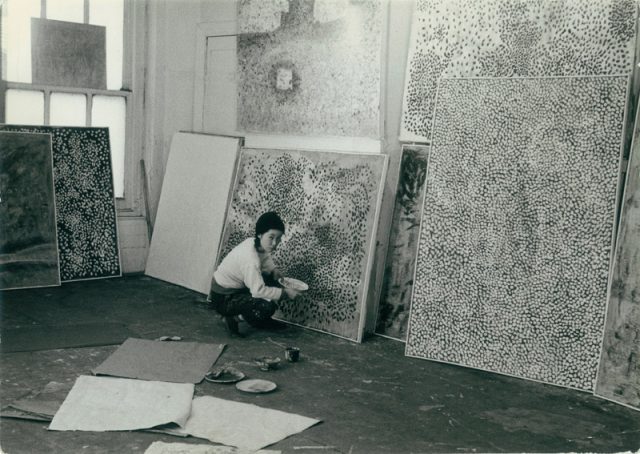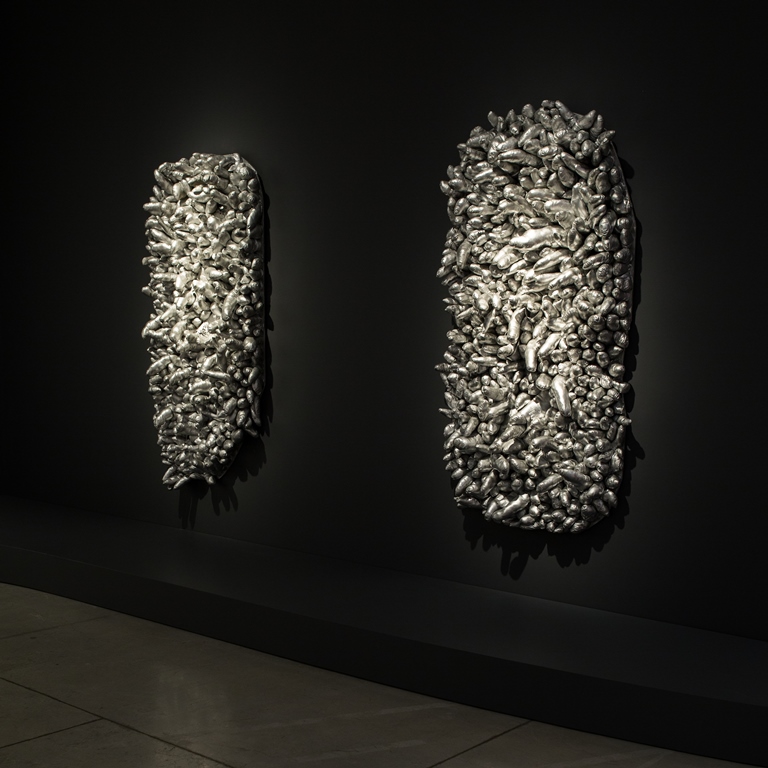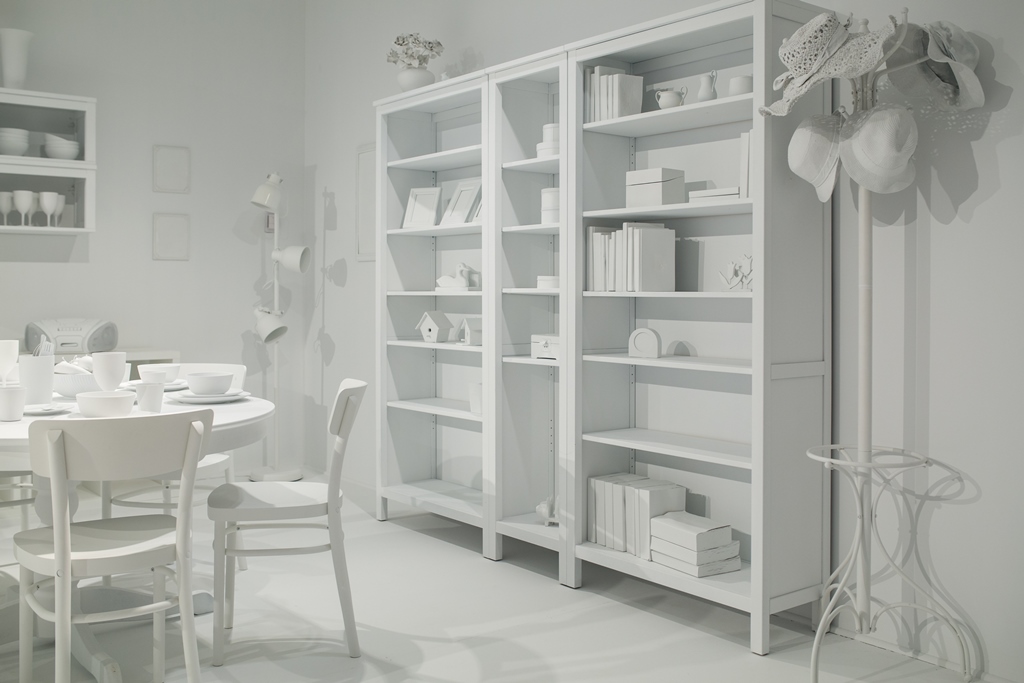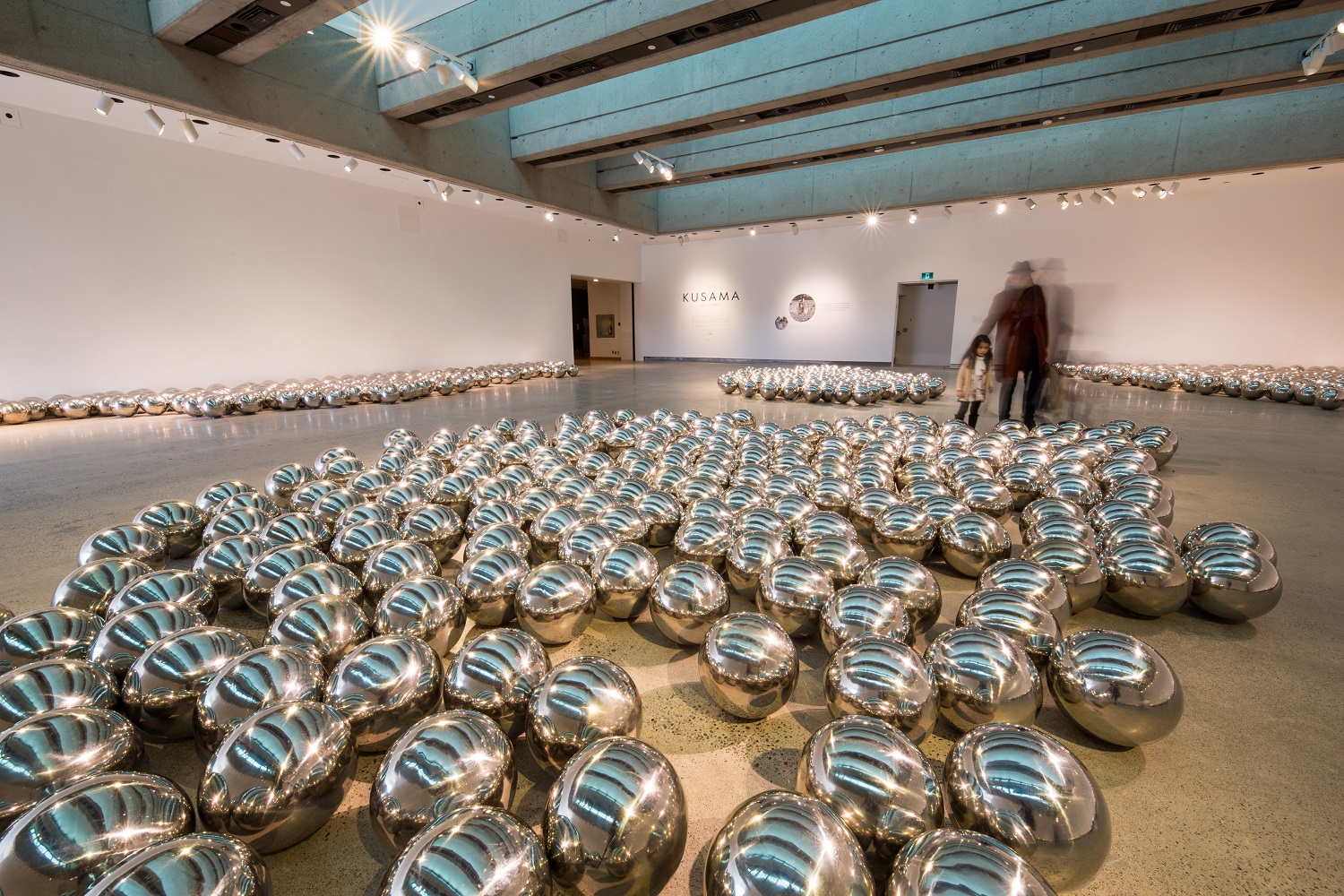Infinity is here

Yayoi Kusama, Narcissus Garden, 1966 – present, Installation view at Art Gallery of Ontario. 1355 stainless steel spheres, each sphere 30 cm (diameter). Courtesy of Ota Fine Arts, Tokyo/Singapore/Shanghai; David Zwirner, New York; Victoria Miro, London © Yayoi Kusama.
It may have felt like eternity waiting for Yayoi Kusama: Infinity Mirrors to arrive in Toronto. The touring exhibition first opened at the Hirshhorn Museum and Sculpture Garden in Washington, D.C. a year ago but patient art fans will be thrilled to know that eternity is almost over, and Infinity in Toronto opens on March 3!
We spoke to Adelina Vlas, Associate Curator of Contemporary Art, the AGO’s lead curator on Infinity Mirrors, who gave us the inside scoop on the exhibition’s uniquely Toronto elements.
Large-Scale Photo Murals
Yayoi Kusama may not be in Toronto, but her presence will be strongly felt in the exhibition. In addition to a video of Kusama welcoming visitors to the show and a selection of archival materials on display, the AGO has installed several wall-size black and white murals of Kusama, some of which show her in her New York studio in the 1960s.
Kusama’s Self-Obliteration
Another way of bringing Kusama into the Gallery that’s unique to the AGO is a continuous projection of the film, Self-Obliteration, made with American experimental filmmaker Jud Yalkut in 1967. The film features footage from her staged public happenings, during which Kusama paints models with polka dots. The film was so popular in art house film circles that Kusama organized regular screenings and set up a company to sell prints from the film by mail order.
Ennui, 1976
The AGO is bringing this pair of sculptural wall works together for the first time. Ennui marks Kusama’s return to her 1960s Accumulations series, featuring the soft phallic-like forms that she used in the Infinity Mirror Room – Phalli’s Field. She often coated these works with silver paint, evoking the reflective surfaces of her Infinity Mirror Rooms. If you look closely, you can also see how Kusama has worked pairs of shoes in among the soft sculptures.
The Obliteration Room
In The Obliteration Room, Kusama provides visitors with colourful dot stickers to be used to eliminate traces of the original white room through the act of communal “obliteration.” Kusama uses a polka dot as a universal equalizer; a connector between all of us as we collectively participate in obliterating the environment by placing dots throughout this installation.
The AGO’s Obliteration Room will have a distinctly Torontonian feel – with a modern living room leading to a backyard complete with bicycle, a cooler, a bonfire pit, Muskoka chairs and an ivy-covered wall. Feel free to take a seat!
Narcissus Garden
For the first time on the tour, the Infinity Mirrors exhibition will be accompanied by a complementary presentation of Kusama’s iconic installation, Narcissus Garden. Shown in Signy Eaton Gallery (and included in General Admission), this work consists of 1,355 stainless-steel spheres that make up an infinite mirrored field that distorts and duplicates your reflection as you move through it. The work was first installed in 1966 during the 33rd Venice Biennale, a major international art exhibition occurring every two years, where Kusama originally intended to sell the orbs to patrons for $2 each. Accompanied by a sign that read “Your Narcissism for Sale,” it was a playful commentary on consumerism in the art world.
With unique elements to Toronto’s stop on the exhibition, we can’t wait for Infinity Mirrors to open its doors!
Are you an AGOinsider yet? If not, sign up to have stories like these delivered straight to your inbox every week.
The AGO is grateful for support from
The AGO is grateful for support from
Lead Sponsor
Lead Sponsor
Supporting Sponsors
Supporting Sponsors
Generous Supporters
Generous Supporters
With assistance from
With assistance from
Government Partner
Government Partner
Promotional Partner
Promotional Partner
Supported by
Supported by
Organizing Partner
Organizing Partner





